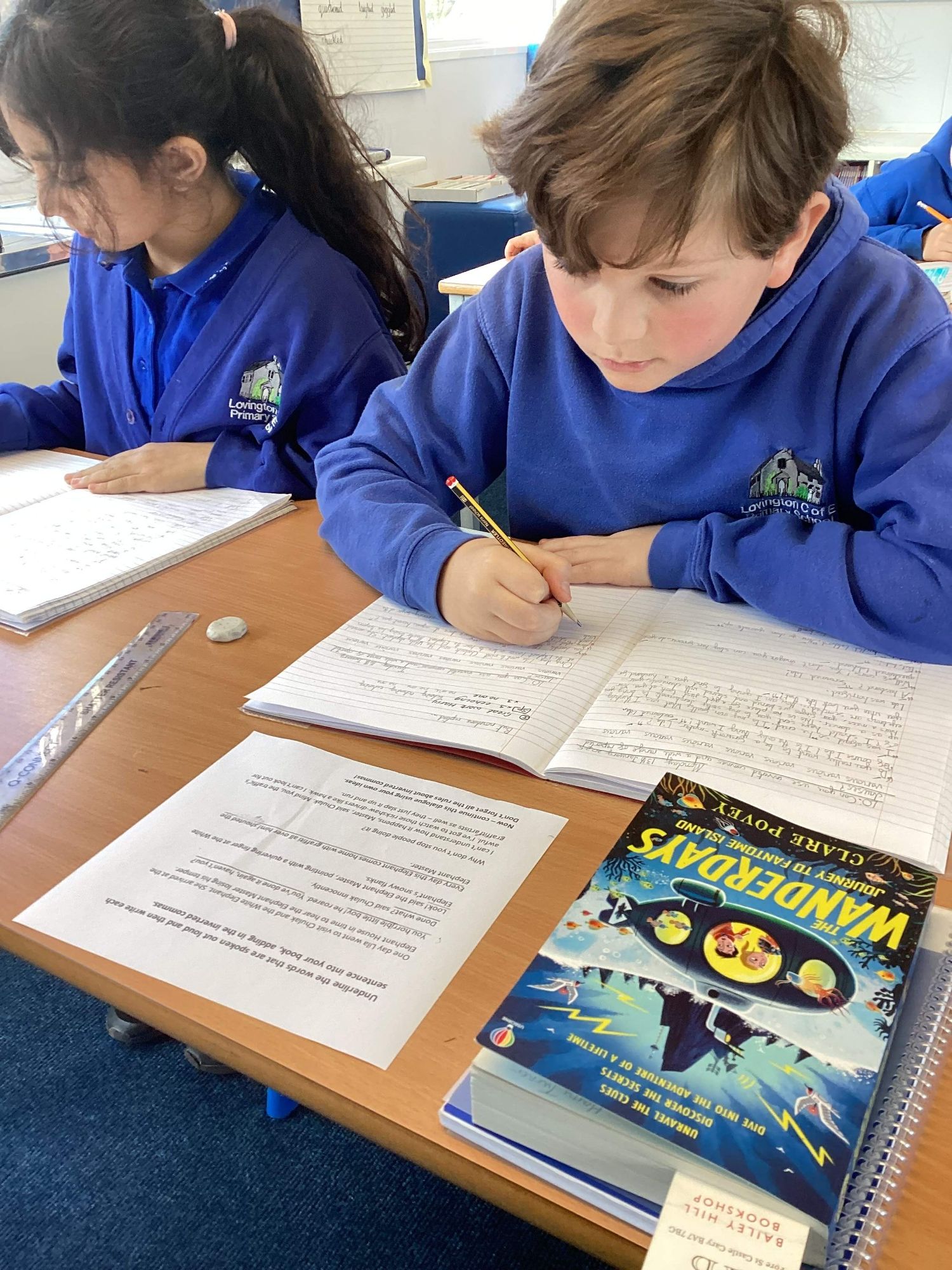English
English – Writing & Extended Writing
Intent
The National Curriculum aims to ensure that in English; teachers should develop pupil’s spoken language, reading, writing and vocabulary as integral aspects of the subject. The intention of the English curriculum we offer at Lovington Primary School is to give children a competence in English that enables them to communicate effectively at home, at school and in the wider world, leading to improved life skills and wider opportunities. We intend to develop skills of speaking, listening, reading and writing, including all of their inherent skills, enabling children to organise and express their own thoughts and to access the knowledge and ideas of others.
An understanding of how language is the vehicle for communication in both oral and written forms is paramount in our thinking and planning. All staff have completed training with Leah Crawford to fully embed the use of high-quality texts in all our English lessons and this is reflected in our planning.
In Key Stage 1 and 2, our children follow the National Curriculum through a purpose-based approach. We are dedicated to the teaching of English, ensuring that children’s writing is developed through the exposure of high-quality literature and that our writing has a clear purpose. Teachers choose texts that demonstrate the language features we are teaching, that are interesting and engaging as well as being mindful to ensure we expose our children to a wide range of writers.

Implementation
English is a core subject and is at the heart of our curriculum. Each learning experience covers a range of reading and writing genres and, where appropriate, makes links to other areas of the curriculum. The use of high-quality texts are used to teach the core skills in-line with the expectations of the National Curriculum.
Our planning incorporates the structure:
Red box work – consolidation/revisiting of an area of previous learning to embed knowledge and skills, that is displayed on slides for children to respond to on white boards at the beginning of every lesson.
Teaching input – the learning objective is shared. The teacher models the skill to the whole class and the children begin to develop their fluency together as a group.
Independent – Independent work provides the means for all children to develop the skills promoted within the lesson.
Plenary – provides opportunities to justify learning, embed knowledge and key skills, recapping the work completed in the lesson.
Spoken language is promoted throughout the curriculum and across all subjects. Spelling, vocabulary, grammar and punctuation are promoted throughout all writing opportunities as well as being taught explicitly.
We divide writing into the following four purposes:
-
Writing to entertain.
-
Writing to inform.
-
Writing to persuade.
-
Writing to discuss.
As a rough guide, we expect around half of curriculum time to be taken up by 'writing to entertain', with the remaining non-fiction elements sharing the remaining time. Notably, in Key Stage 1, the non-fiction focus is only on 'writing to inform' and, in Key Stage 2, 'writing to discuss' is not covered in earnest until Years 4, 5 & 6.
Within each style of writing, children follow a similar path, dependent on age, skills, and appropriateness:
- Immersion; discussing and investigating the writing features used by the author.
-
Organising and planning their own writing, and writing a first draft.
-
Editing and improving with support from their teacher and peers.
-
Reflecting on their improvement comments and finally redrafting their work.
Impact of English at Lovington C of E Primary School
Throughout every lesson, formative assessment takes place and feedback is given through active marking and verbal feedback to children, to ensure that they are meeting the specific learning objective. Teachers use this assessment to guide their planning and ensure they are providing an English curriculum that will allow each child to progress and be challenged at a level appropriate to them, moving those children who are ready to study at greater depth.
The teaching of English is monitored on a termly basis with pupil voice interviews held and the moderation of writing completed with other local schools. Regular monitoring and assessment opportunities ensure that every child achieves their full potential.
